Everyday Foods That Secretly Weaken Your Bones
Vaibhav Kochar | Jul 12, 2025, 21:00 IST
Food rich in Calcium
( Image credit : Times Life Bureau )
Many foods and habits hinder calcium absorption. Caffeine and high-sodium foods deplete calcium. Oxalate-rich foods like spinach also block absorption. Soft drinks and excessive protein intake are detrimental. Nighttime eating patterns affect calcium processing. Bone health starts in youth. Awareness of these factors is crucial for overall well-being. Prioritize informed choices for stronger bones and a healthier life.
Most people believe that drinking milk or eating leafy greens is enough for strong bones. And while that’s true, there’s a missing truth that hardly anyone talks about.
Even if you're getting enough calcium, your body might not be absorbing it simply because some everyday foods block its absorption silently.
This isn’t just a health issue. It's a life issue. Weak bones mean more fractures, joint pain at a younger age, poor posture, and in worst cases, osteoporosis in your 30s or 40s.
Let's dive deep into surprising foods and habits that stop your body from absorbing calcium properly and what to do about it.

Tea, coffee, and energy drinks that contain caffeine are everywhere. It’s loved for keeping people awake and active. But when consumed in excess, caffeine does more harm than good.
Here’s how:
But here’s what’s rarely told:
Caffeine blocks not only calcium but also vitamin D, which is key to calcium absorption. So, even if your diet is rich in calcium, caffeine can flush it out like it never existed.
> Energy is important. But so are bones. Balance both.
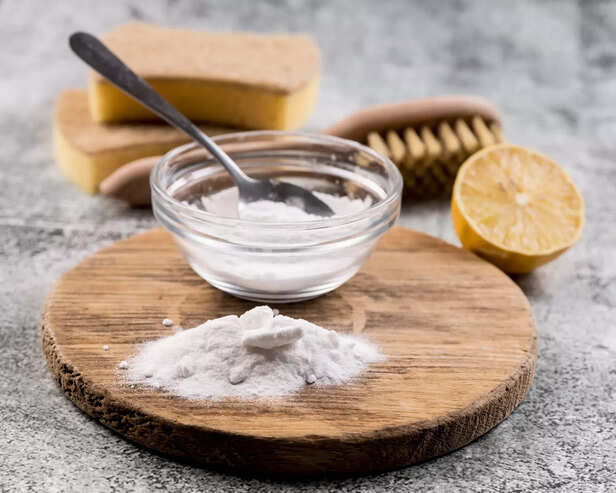
It’s not just fast food; even everyday meals in Indian kitchens are high in salt. But salt doesn’t just raise blood pressure. It quietly pulls calcium out of your bones.
What happens:
High sodium also affects parathyroid hormone levels, which regulate bone health. So the problem is deeper than just salt.
> Taste is temporary. But bone damage is long-lasting.
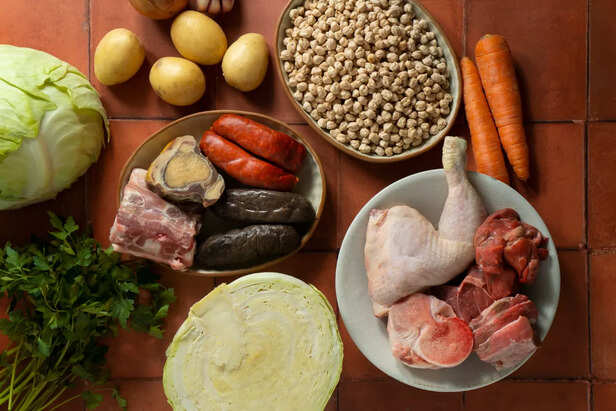
This is where the topic gets tricky. Some healthy foods can reduce calcium absorption because they are high in oxalates (natural compounds).
Examples include:
What people don’t know:
Mixing high-oxalate foods with calcium-rich items (like curd or paneer) in the same meal further reduces calcium absorption. So the classic combo of palak-paneer might be tasty, but not as healthy as it seems.
> Even good food needs good timing.
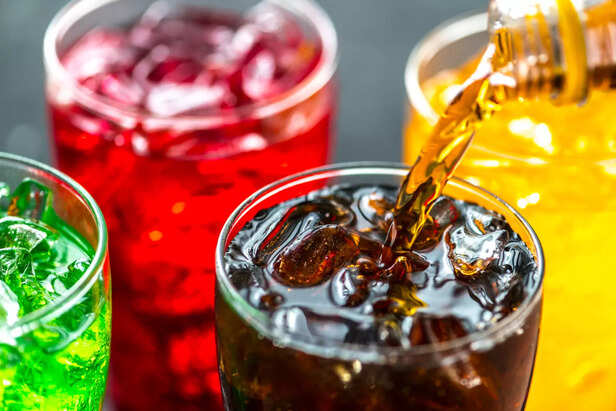
Soft drinks like colas contain phosphoric acid, which directly interferes with calcium balance in the body. It does three dangerous things:
And the worst part?
Cola drinks don't just lack calcium, they actively cancel the calcium you already have.
Even diet sodas are no safer. Most contain artificial sweeteners and acids that weaken gut health, another hidden factor in poor calcium absorption.
> Every sip may be ageing your bones faster than you think.
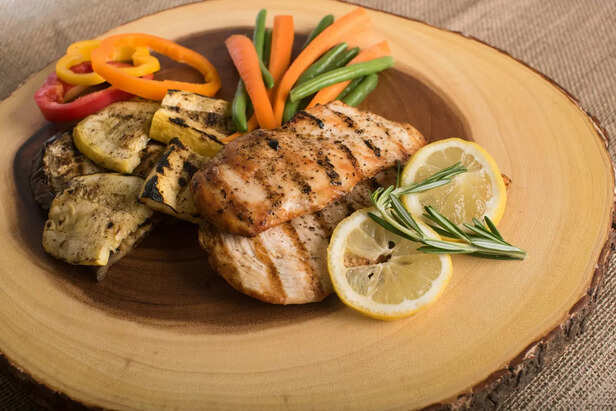
Yes, protein is essential. But an excessively high-protein diet, especially one that’s meat-heavy, can cause the body to lose calcium through the urine.
Why does it happen?
Not many know:
Plant-based proteins (like dals, tofu, and chana) are less likely to cause this calcium loss.
> Build muscle, yes, but not at the cost of your bones.
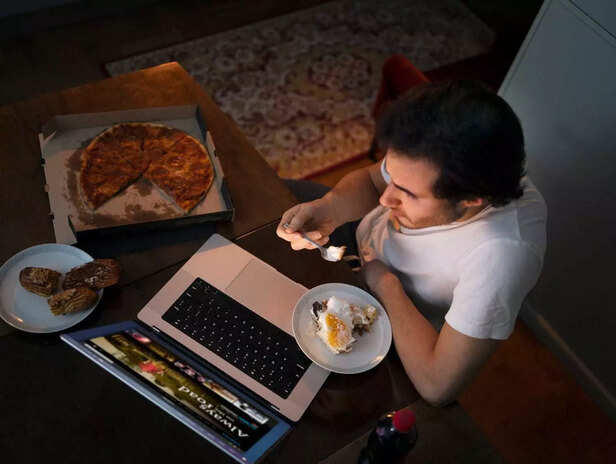
Here’s something rarely discussed: when you eat affects calcium absorption just as much as what you eat.
For example:
Also, late-night snacking on salty, packaged foods depletes the calcium stored in bones over time, a double loss.
> Eating late is not just bad for fat, it’s bad for bones too.
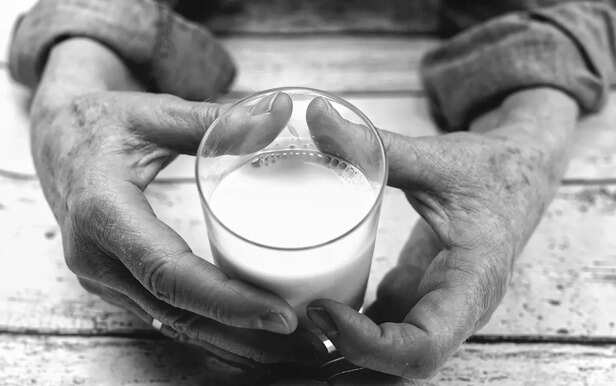
People often treat bone health like an “old age problem.”
But the truth is, bone damage begins in youth, silently and slowly, because of small daily habits.
Eating healthy isn’t just about adding nutrients. It’s also about knowing what’s blocking them.
Calcium doesn’t just keep your bones strong. It supports:
So, it's not a scary thing, but about empowering ourselves with real awareness, so that we can make small changes before it’s too late.
Explore the latest trends and tips in Health & Fitness, Travel, Life Hacks, Fashion & Beauty, and Relationships at Times Life!
Even if you're getting enough calcium, your body might not be absorbing it simply because some everyday foods block its absorption silently.
This isn’t just a health issue. It's a life issue. Weak bones mean more fractures, joint pain at a younger age, poor posture, and in worst cases, osteoporosis in your 30s or 40s.
Let's dive deep into surprising foods and habits that stop your body from absorbing calcium properly and what to do about it.
1. Too Much Caffeine: A Cup Too Far for Your Bones

Caffeine
( Image credit : Times Life Bureau )
Tea, coffee, and energy drinks that contain caffeine are everywhere. It’s loved for keeping people awake and active. But when consumed in excess, caffeine does more harm than good.
Here’s how:
- Caffeine increases calcium excretion through urine
- It reduces the body’s ability to absorb calcium in the gut
- Over time, it leads to bone thinning and early weakness
But here’s what’s rarely told:
Caffeine blocks not only calcium but also vitamin D, which is key to calcium absorption. So, even if your diet is rich in calcium, caffeine can flush it out like it never existed.
> Energy is important. But so are bones. Balance both.
2. High-Sodium Foods: Salt That Slowly Steals Your Strength

Sodium salts
( Image credit : Freepik )
It’s not just fast food; even everyday meals in Indian kitchens are high in salt. But salt doesn’t just raise blood pressure. It quietly pulls calcium out of your bones.
What happens:
- More sodium = More calcium loss through urine
- The kidneys work harder, filtering out both salt and calcium
- Long term, it increases the risk of bone loss and fractures
- Instant noodles
- Pickles
- Processed snacks
- Papads and chutneys
- Even that “extra namak” in homemade dal
High sodium also affects parathyroid hormone levels, which regulate bone health. So the problem is deeper than just salt.
> Taste is temporary. But bone damage is long-lasting.
3. Oxalate-Rich Foods: Healthy But Blocking Your Calcium Quietly

Oxalate rich food
( Image credit : Freepik )
This is where the topic gets tricky. Some healthy foods can reduce calcium absorption because they are high in oxalates (natural compounds).
Examples include:
- Spinach
- Beets
- Sweet potatoes
- Cocoa (yes, chocolate too)
- Almonds
What people don’t know:
Mixing high-oxalate foods with calcium-rich items (like curd or paneer) in the same meal further reduces calcium absorption. So the classic combo of palak-paneer might be tasty, but not as healthy as it seems.
> Even good food needs good timing.
4. Cola & Soft Drinks: Fizzy Taste, Fractured Future

Soft drinks
( Image credit : Freepik )
Soft drinks like colas contain phosphoric acid, which directly interferes with calcium balance in the body. It does three dangerous things:
- Pulls calcium from bones to balance blood acidity
- Decreases calcium absorption in the intestine
- Promotes bone demineralization over time
And the worst part?
Cola drinks don't just lack calcium, they actively cancel the calcium you already have.
Even diet sodas are no safer. Most contain artificial sweeteners and acids that weaken gut health, another hidden factor in poor calcium absorption.
> Every sip may be ageing your bones faster than you think.
5. Too Much Protein, Especially From Animal Sources

Natural protein
( Image credit : Unsplash )
Yes, protein is essential. But an excessively high-protein diet, especially one that’s meat-heavy, can cause the body to lose calcium through the urine.
Why does it happen?
- Protein breakdown increases the acidity in the body
- To neutralize it, the body pulls calcium from bones
- The more acidic your blood, the more calcium your bones lose
Not many know:
Plant-based proteins (like dals, tofu, and chana) are less likely to cause this calcium loss.
> Build muscle, yes, but not at the cost of your bones.
6. Night time Eating Patterns That Block Bone Nutrition

Night time cravings
( Image credit : Freepik )
Here’s something rarely discussed: when you eat affects calcium absorption just as much as what you eat.
For example:
- Eating calcium-rich foods at night after a salty or high-oxalate meal reduces absorption
- Taking calcium supplements with tea or coffee in the evening is useless
- Sleeping immediately after a heavy, acidic meal slows calcium digestion
Also, late-night snacking on salty, packaged foods depletes the calcium stored in bones over time, a double loss.
> Eating late is not just bad for fat, it’s bad for bones too.
Calcium Isn’t Just About Milk. It’s About Awareness

Milk
( Image credit : Pixabay )
People often treat bone health like an “old age problem.”
But the truth is, bone damage begins in youth, silently and slowly, because of small daily habits.
Eating healthy isn’t just about adding nutrients. It’s also about knowing what’s blocking them.
Calcium doesn’t just keep your bones strong. It supports:
- Mental health
- Sleep quality
- Heartbeat rhythm
- Hormonal balance
- Even fertility in both genders
So, it's not a scary thing, but about empowering ourselves with real awareness, so that we can make small changes before it’s too late.
Explore the latest trends and tips in Health & Fitness, Travel, Life Hacks, Fashion & Beauty, and Relationships at Times Life!
Frequently Asked Questions (FAQs)
- Can stress or anxiety affect calcium absorption in the body?
Yes, chronic stress increases cortisol, which lowers calcium retention and bone strength. - Does vitamin D deficiency make calcium-rich foods useless?
Absolutely — without enough vitamin D, your body can’t absorb calcium properly. - Should calcium supplements be taken with or without food?
Calcium is better absorbed with meals, especially when paired with vitamin D. - Can long-term use of antacids reduce calcium absorption?
Yes, certain antacids lower stomach acid needed for calcium breakdown.
